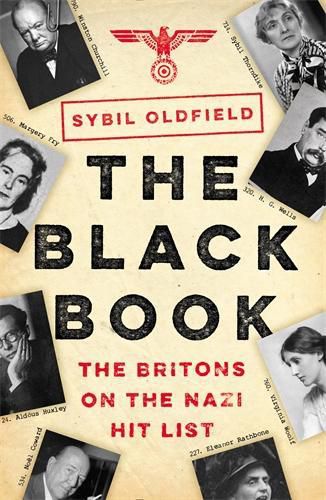Readings Newsletter
Become a Readings Member to make your shopping experience even easier.
Sign in or sign up for free!
You’re not far away from qualifying for FREE standard shipping within Australia
You’ve qualified for FREE standard shipping within Australia
The cart is loading…






‘Oldfield’s thoroughly researched and fascinating historical biography explores the lives of many of the 2,600 citizens who attracted Hitler’s ire, ranging from high-profile entertainers and writers to those naturalised refugees who doggedly resisted the Nazis from afar’ - Observer
In 1939, the Gestapo created a list of names: the Britons whose removal would be the Nazis’ priority in the event of a successful invasion. Who were they? What had they done to provoke Germany? For the first time, the historian Sybil Oldfield uncovers their stories and reveals why the Nazis feared their influence.
Those on the hitlist - many of them naturalised refugees - were some of Britain’s most gifted and humane inhabitants. They included writers, humanitarians, religious leaders, scientists, artists, and social reformers.
By examining these targets of Nazi hatred, Oldfield not only sheds light on the Gestapo worldview but also movingly reveals a network of truly exemplary Britons: mavericks, moral visionaries and unsung heroes.
$9.00 standard shipping within Australia
FREE standard shipping within Australia for orders over $100.00
Express & International shipping calculated at checkout
‘Oldfield’s thoroughly researched and fascinating historical biography explores the lives of many of the 2,600 citizens who attracted Hitler’s ire, ranging from high-profile entertainers and writers to those naturalised refugees who doggedly resisted the Nazis from afar’ - Observer
In 1939, the Gestapo created a list of names: the Britons whose removal would be the Nazis’ priority in the event of a successful invasion. Who were they? What had they done to provoke Germany? For the first time, the historian Sybil Oldfield uncovers their stories and reveals why the Nazis feared their influence.
Those on the hitlist - many of them naturalised refugees - were some of Britain’s most gifted and humane inhabitants. They included writers, humanitarians, religious leaders, scientists, artists, and social reformers.
By examining these targets of Nazi hatred, Oldfield not only sheds light on the Gestapo worldview but also movingly reveals a network of truly exemplary Britons: mavericks, moral visionaries and unsung heroes.